We’ve discovered many amazing rituals that have been passed down through generations. These rituals are not just old practices; they’re ways to help us feel better in our bodies and minds. But I’ve researched and experienced some of these rituals, and I’m excited to share them with you. Here are 10 of the best African rituals that we think you should try:
10 Best African Rituals You Need Right Now
1. Ritual Baths
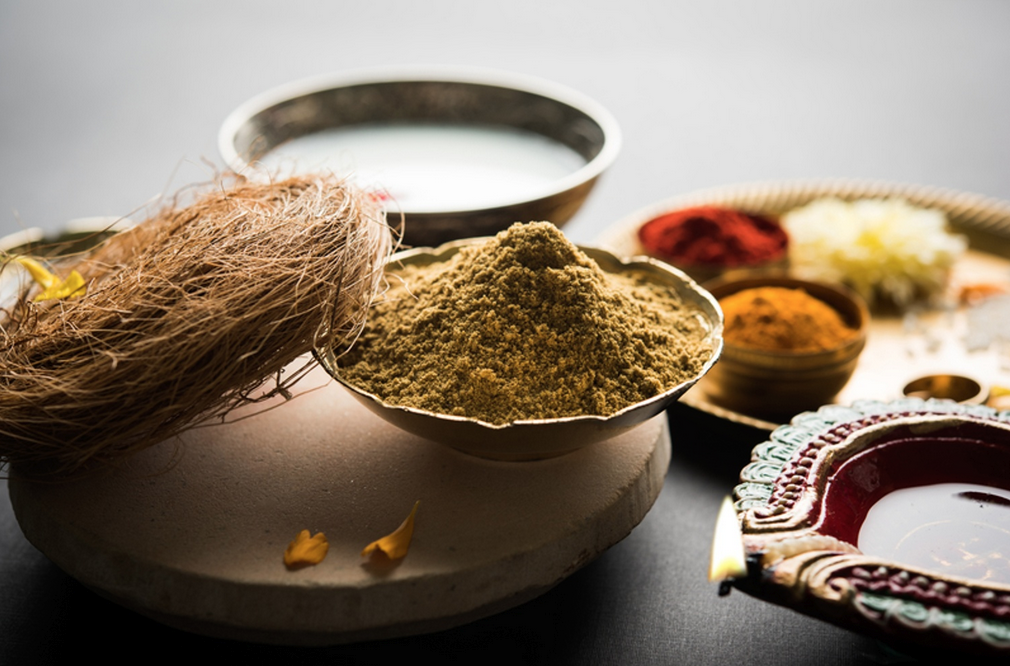
Ritual baths are a big part of spiritual cleansing in African cultures. I’ve learned that these baths are more than just getting clean. They’re about washing away bad energy and connecting with the spirit world.
Here’s how we do it:
- Fill a tub with warm water
- Add special herbs and leaves
- Sometimes, we put in essential oils too
The herbs and oils we use are chosen carefully. Each one has a special job. Some help with healing, while others are for protection or bringing good luck.
I remember the first time I tried a ritual bath. The water smelled amazing from all the herbs. As I soaked in it, I felt like all my worries were washing away. It was so relaxing!
These baths are used for different reasons:
- To clean ourselves spiritually
- To heal from sickness or sadness
- To get ready for important events
In some African countries, people take these baths before big ceremonies or after funerals. They believe it helps to remove any negative energy they might have picked up.
We can try this at home too. Even if we don’t believe in spirits, a bath with nice-smelling herbs can help us relax and feel refreshed. It’s a great way to take care of ourselves.
2. Herbal Medicine
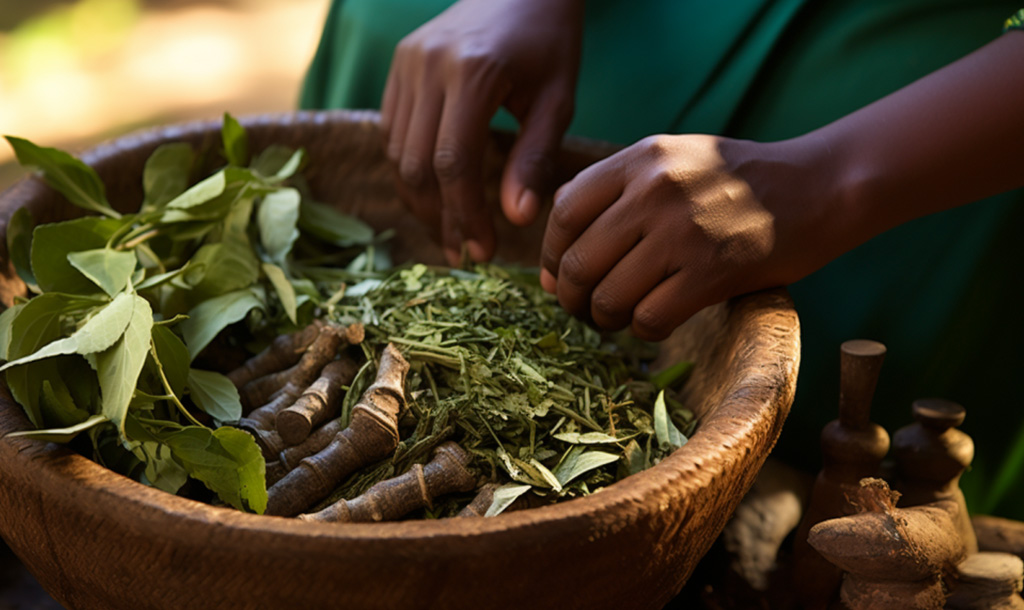
In Africa, we have a long history of using plants to heal people. This is called herbal medicine. I’ve seen how powerful these natural remedies can be.
Herbalists are people who know all about healing plants. They’re like doctors, but instead of giving pills, they use leaves, roots, and bark. These herbalists learn from their elders and spend years studying plants.
Here are some common herbs we use:
- Aloe vera for skin problems
- Ginger for stomach aches
- Eucalyptus for colds
I once had a bad cough that wouldn’t go away. A local herbalist gave me a tea made from a mix of herbs. It tasted strong, but after a few days, my cough was gone!
Herbal medicine isn’t just for physical health. We use it for emotional and spiritual health too. Some herbs are believed to bring good luck or chase away bad spirits.
It’s important to remember that even though these herbs are natural, they can be very strong. We always make sure to use them carefully and ask someone who knows about them before trying new ones.
In many African countries, herbal medicine is used alongside modern medicine. Doctors and herbalists often work together to help people get better.
If you want to try herbal medicine, start small. Maybe try some chamomile tea for better sleep or peppermint for an upset stomach. Always check with a doctor first, especially if you’re taking other medicines.
3. Aromatherapy
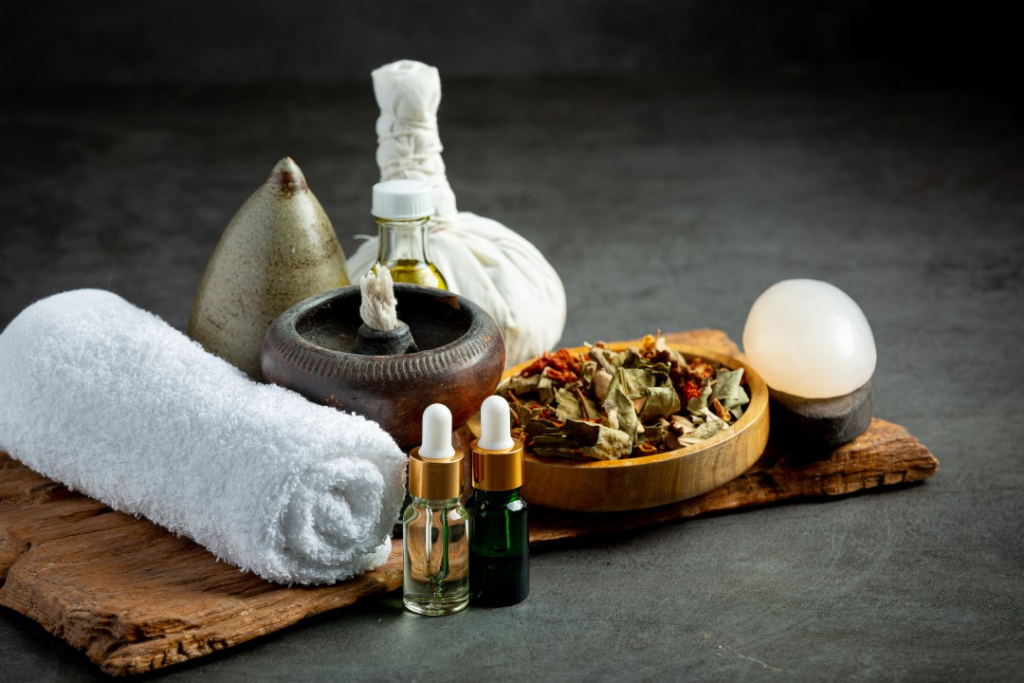
Aromatherapy is another ritual that comes from Africa. It started in ancient Egypt, which is part of North Africa. We use nice-smelling plants to help us feel better.
In aromatherapy, we use the scents from plants in different ways:
- Oils that we put on our skin
- Scents we breathe in
- Herbs we put in our baths
Some of the plants we use a lot are:
- Eucalyptus – helps with breathing
- Lavender – helps us relax
- Peppermint – gives us energy
I like to use lavender oil when I’m feeling stressed. Just a few drops on my pillow help me sleep better at night.
In some African healing ceremonies, we burn herbs to make the air smell good. This is called smudging. We believe it cleans the air and chases away bad energy.
Aromatherapy is easy to try at home. You can buy essential oils at many stores. But be careful – some oils are very strong and shouldn’t go directly on your skin. It’s best to mix them with a gentler oil first.
Here’s a simple way to start:
- Get a small bottle of lavender oil
- Put a few drops in a bowl of hot water
- Breathe in the steam
This can help you relax after a long day. It’s amazing how something as simple as a nice smell can make us feel so much better!
4. Holistic Massage and Bodywork
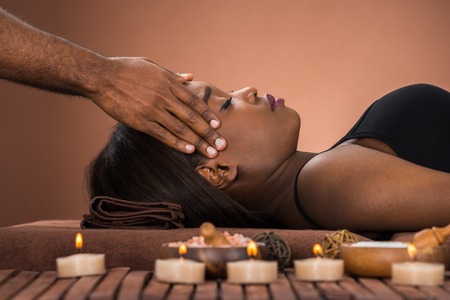
In Africa, we don’t just rub muscles when we do massage. We believe in treating the whole person – body, mind, and spirit. This is what we call holistic massage and bodywork.
Different African countries have their own special massage techniques:
- In Ethiopia, they have coffee ceremonies with massage
- Morocco has steam rooms called hammams where people get scrubbed and massaged
- In Ghana, they use shea butter for massages
I once tried a Moroccan hammam. First, I sat in a steamy room that felt like a sauna. Then, someone scrubbed my skin with a special mitt. Finally, I got a massage with argan oil. I felt so clean and relaxed after!
These massages do more than just feel good. We believe they:
- Help blood flow better in our bodies
- Release blocked energy
- Connect us to our spiritual selves
In some traditions, the massage therapist might say special words or use sacred objects during the massage. This is to bring healing energy to the person.
Even if you can’t go to Africa for a traditional massage, you can try some of these ideas at home:
- Use natural oils like shea butter or coconut oil for moisturizing
- Gently massage your own feet before bed
- Try a steam treatment by putting your face over a bowl of hot water with a towel over your head
Remember, massage isn’t just about working out knots in muscles. It’s a way to take care of our whole selves and feel connected to our bodies.
5. Meditation and Healing
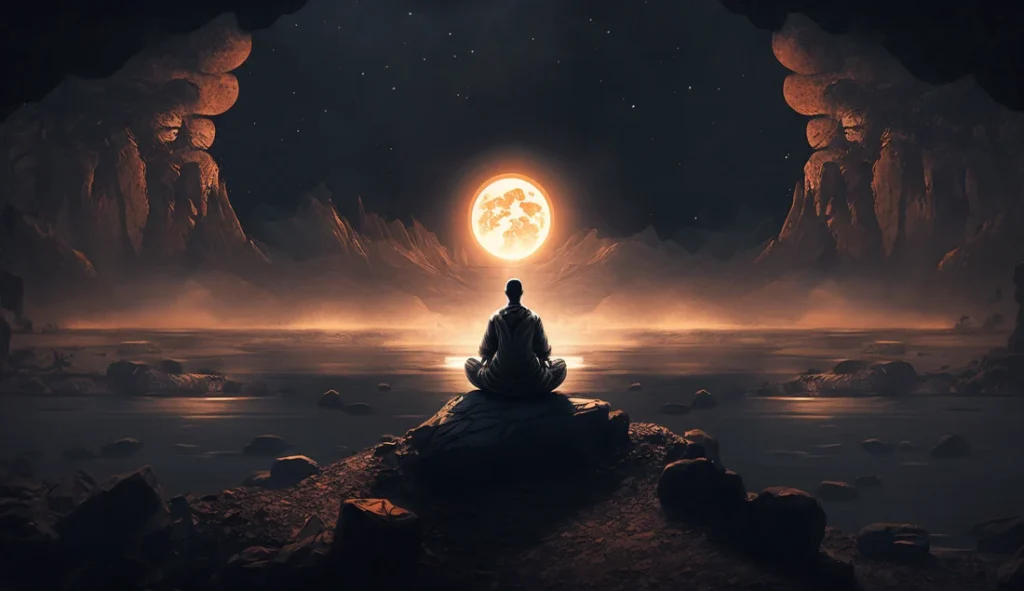
Meditation is a big part of African healing traditions. We use it to calm our minds and connect with nature. In many African cultures, we believe that being quiet and still can help us heal.
Here are some ways we meditate in Africa:
- Sitting quietly in nature
- Walking slowly and mindfully
- Listening to the sounds of animals and plants
I like to meditate early in the morning. I sit outside and listen to the birds waking up. It helps me start my day feeling peaceful.
In some African wellness retreats, they have special meditation spots. These might be:
- On top of a hill with a great view
- Near a quiet river
- In a forest clearing
We believe that certain places have special energy. Some people call these “ley lines”. Meditating in these spots is supposed to be extra powerful.
You don’t need to go to Africa to try this kind of meditation. Here’s how you can do it at home:
- Find a quiet spot outside
- Sit comfortably or lie down
- Close your eyes and listen to the sounds around you
- Take deep breaths and try to clear your mind
Even just 10 minutes of this can help you feel more relaxed and focused.
Some African healers use meditation as part of their treatments. They might guide a sick person through meditation to help them heal. We believe that a calm mind can help the body get better faster.
Remember, there’s no “right” way to meditate. The important thing is to take time to be quiet and look inside yourself. This can help us feel more balanced and at peace.
6. Yoga and Fitness
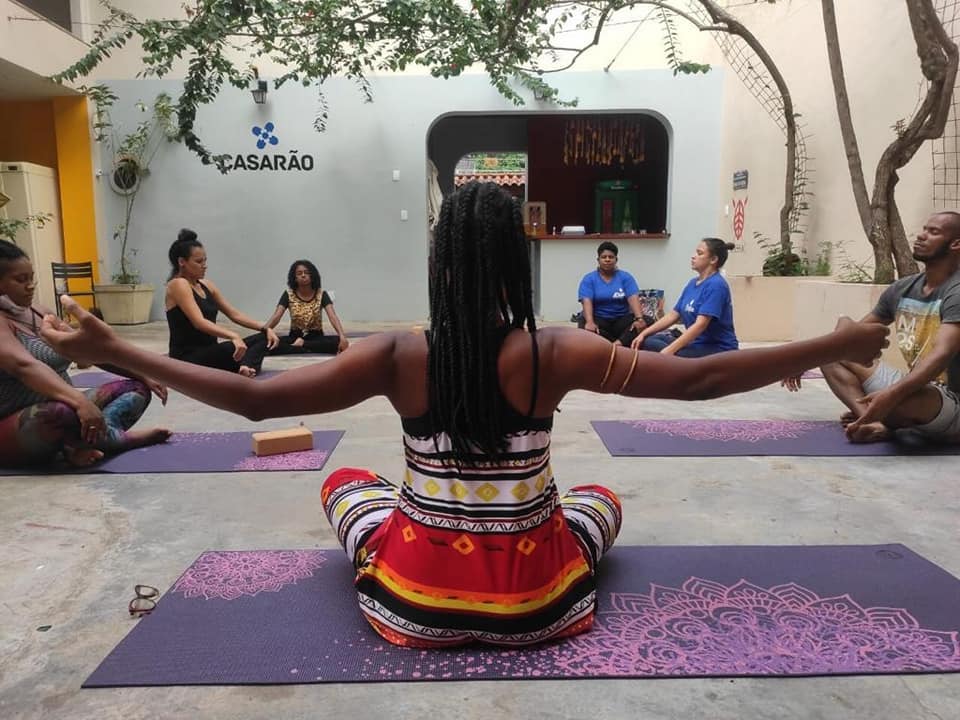
You might not think of yoga when you think of Africa, but it’s becoming more popular here. Many African wellness retreats now offer yoga classes. We combine traditional African movements with yoga poses.
I tried yoga for the first time at a retreat in South Africa. We did our poses outside, with a view of the mountains. It was amazing to stretch and breathe while looking at such beautiful scenery.
In Africa, we often do yoga and fitness activities outdoors. This helps us feel connected to nature while we exercise. Some places where we might do yoga are:
- On the beach
- In a grassy field
- On a platform overlooking a valley
Fitness in Africa isn’t just about going to a gym. We like to move our bodies in natural ways. Some traditional African dances are great exercise. They get our hearts pumping and help us stay flexible.
Here are some African-inspired fitness ideas you can try:
- Dance to African music
- Do yoga poses while focusing on your breathing
- Take a walk in nature and really notice your surroundings
In some parts of Africa, we have “wellness warriors”. These are people who teach others about healthy living. They might lead fitness classes or teach about good food choices.
Even if you can’t go to an African wellness retreat, you can bring some of these ideas into your life. Try doing your usual exercises outside. Or put on some African music and dance around your living room. The important thing is to move your body in a way that feels good to you.
7. Culinary Experience
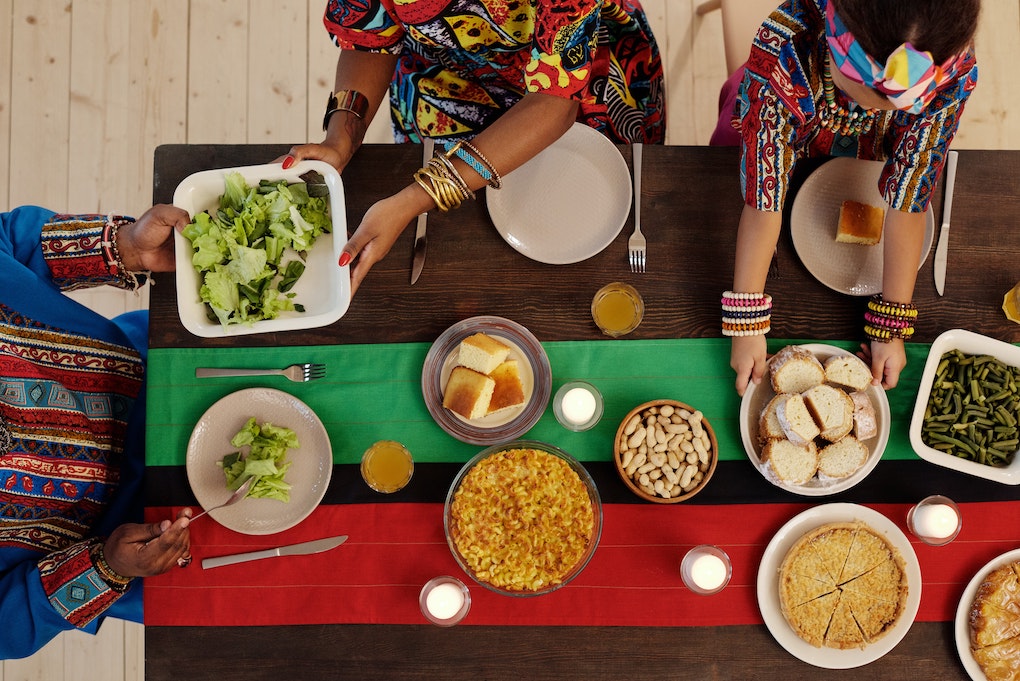
Food is a big part of African culture and wellness. We believe that what we eat affects not just our bodies, but our minds and spirits too. Many African wellness retreats offer special food experiences.
In these retreats, we might:
- Learn to cook traditional African dishes
- Visit local farms to see where food comes from
- Eat meals made with fresh, local ingredients
I once went to a cooking class where we learned to make a dish called “jollof rice”. It’s a spicy rice dish that’s popular in West Africa. Making it from scratch helped me appreciate how much care goes into our traditional foods.
African cuisine is very diverse. Each region has its own special dishes. But there are some things that many African diets have in common:
- Lots of fresh fruits and vegetables
- Whole grains like millet and sorghum
- Healthy fats from foods like avocados and nuts
We believe that food can be medicine. Many of our traditional dishes use ingredients that are good for health. For example, we might use ginger to help with digestion or baobab fruit for vitamin C.
Here are some African food ideas you can try at home:
- Make a fruit salad with tropical fruits like mango and papaya
- Try cooking with new grains like teff or fonio
- Use spices like turmeric and cumin in your cooking
In some African cultures, we have special ways of eating too. For example, in Ethiopia, friends might feed each other as a sign of love and respect. Sharing food is an important part of our traditions.
Remember, eating well isn’t just about the nutrients in our food. It’s also about enjoying our meals and sharing them with others. This is something we can all learn from African food traditions.
8. Spiritual Cleansing Rituals
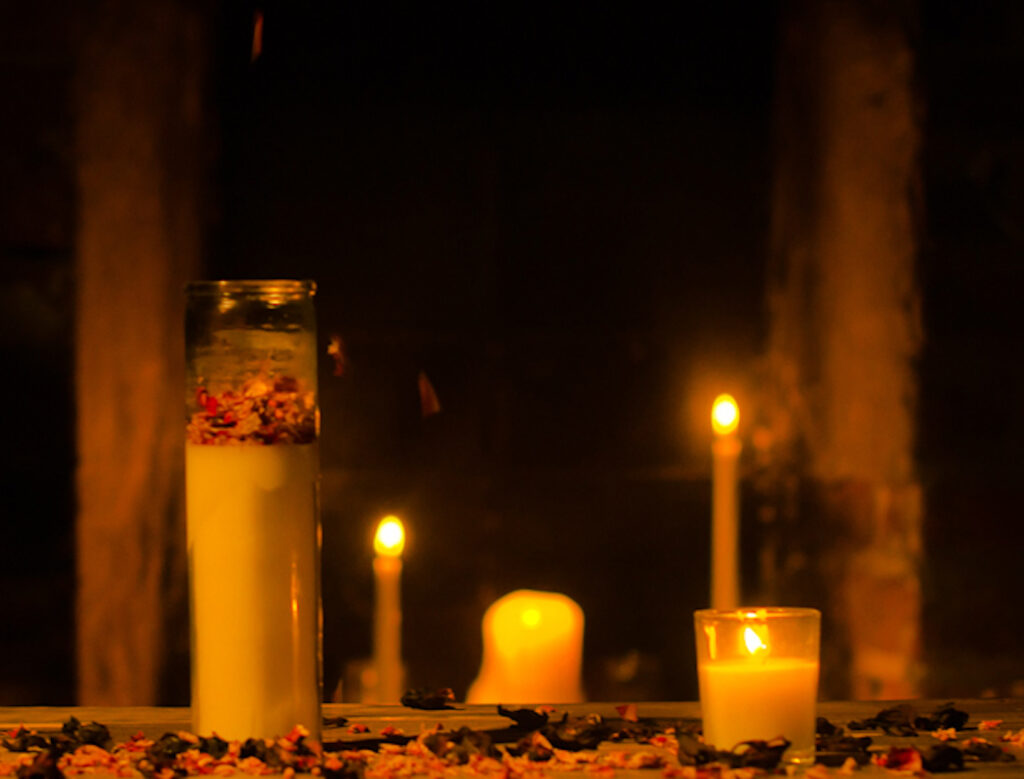
In many African cultures, we believe that sometimes our spirits need cleaning, just like our bodies. We have special rituals for this called spiritual cleansing rituals. These are meant to remove bad energy and bring in good energy.
One type of spiritual cleansing ritual is called a “ritual sacrifice bath”. This might sound scary, but it’s not what you might think. Here’s how it usually works:
- A spiritual leader chooses a small animal, often a chicken
- They say special prayers over the animal
- The animal is sacrificed (killed quickly and humanely)
- Its blood is mixed with herbs and water to make a special bath
I’ve never done this ritual myself, but I’ve talked to people who have. They say it made them feel refreshed and free from worries.
It’s important to know that not all African cultures do animal sacrifices. There are many other ways to do spiritual cleansing, like:
- Burning special herbs and walking through the smoke
- Washing with water that has been blessed by a spiritual leader
- Saying special prayers or chants
We believe these rituals can help with things like:
- Getting rid of bad luck
- Healing from emotional pain
- Preparing for a big life change
If you want to try a spiritual cleansing ritual, you don’t need to sacrifice an animal. Here’s a simple ritual you can do at home:
- Light a candle
- Write down something you want to let go of on a piece of paper
- Carefully burn the paper (be safe!)
- As it burns, imagine the thing you wrote down leaving your life
Remember, the power of these rituals comes from believing in them. Even if you don’t believe in spirits, taking time to think about letting go of negative things can be helpful.
9. Music, Dance, and Drumming
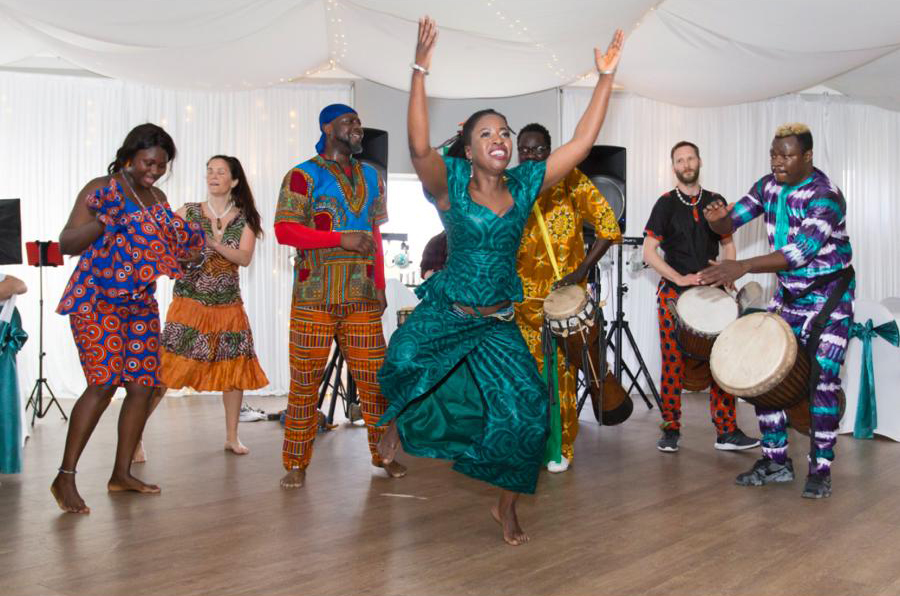
In Africa, we don’t just listen to music – we use it to heal. Music, dance, and especially drumming are big parts of our healing traditions. We believe they can change how we feel and even help us get better when we’re sick.
Here’s how we might use music and dance for healing:
- Drumming circles where everyone plays together
- Special healing dances led by a traditional healer
- Singing songs that have been used for healing for many years
I once went to a drumming circle in Ghana. At first, I felt shy about playing. But soon, I got lost in the rhythm. By the end, I felt energized and happy. It was like the music had washed away my stress.
In some African healing ceremonies, the drums play for hours. We believe this can:
- Put people in a trance-like state
- Help them connect with spirits
- Release emotional pain
Dancing is also really important. We don’t just dance for fun – although it is fun! We dance to:
- Tell stories
- Honor our ancestors
- Heal our bodies and minds
You don’t need to go to Africa to try this kind of healing. Here are some ideas:
- Find a local drumming circle to join
- Put on some African music and dance freely
- Try making music with whatever you have – even pots and pans work!
In many African cultures, we believe that rhythm is connected to the rhythm of our hearts and the rhythm of the universe. When we make music together, we feel connected to each other and to something bigger than ourselves.
Even if you don’t think you’re musical, try it out. You might be surprised at how good it makes you feel to move your body and make some noise!
10. Connecting with Nature
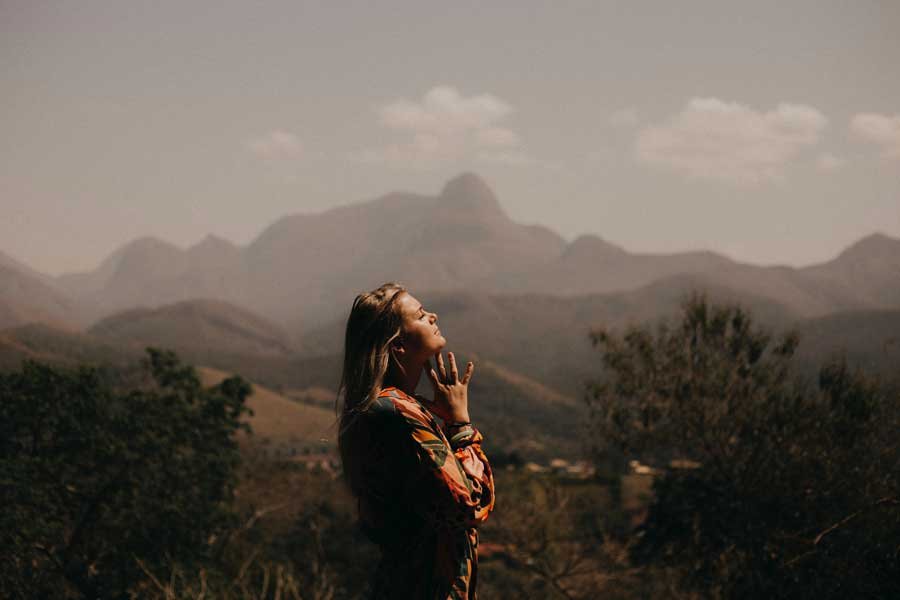
In African traditions, we see ourselves as part of nature, not separate from it. Many of our healing practices involve connecting with the natural world around us. We believe that nature has the power to heal and restore us.
Here are some ways we connect with nature:
- Walking barefoot on the earth (we call this “earthing”)
- Sitting quietly under a big tree
- Watching the sunrise or sunset
I love to go for early morning walks in a nearby park. Feeling the grass under my feet and breathing in the fresh air always makes me feel better.
In some African wellness retreats, they offer special nature experiences like:
- Sleeping under the stars
- Take guided walks to learn about local plants
- Meditating by a waterfall or river
We believe that different natural places have different energies. For example:
- Mountains might help us feel strong and steady
- Rivers could wash away our worries
- Forests might help us feel peaceful and protected
You don’t need to go on a fancy retreat to connect with nature. Here are some simple things you can try:
- Eat a meal outside
- Grow some plants in your home or garden
- Spend time watching birds or insects
In many African cultures, we have a tradition of talking to plants and animals. We might thank a tree for its shade or ask a river for safe passage. This helps us feel more connected to the world around us.
Remember, nature is everywhere – even in big cities. Look for little bits of green in your neighborhood. Spending time in nature can help us feel calmer, happier, and more alive.
Conclusion
I’ve tried many of these rituals myself, and I can say that they really do help. Even small things, like taking a moment to breathe deeply or listen to the birds, can make a big difference in how we feel.
We don’t need to go to Africa or believe in spirits to benefit from these practices. The important thing is to take time for ourselves and connect with the world around us. Whether it’s through food, music, nature, or quiet reflection, there are many ways to bring a little bit of African wisdom into our lives.
So why not try one of these rituals? You might be surprised at how good it makes you feel. And who knows? You might discover a new way of taking care of yourself that becomes part of your daily life.














